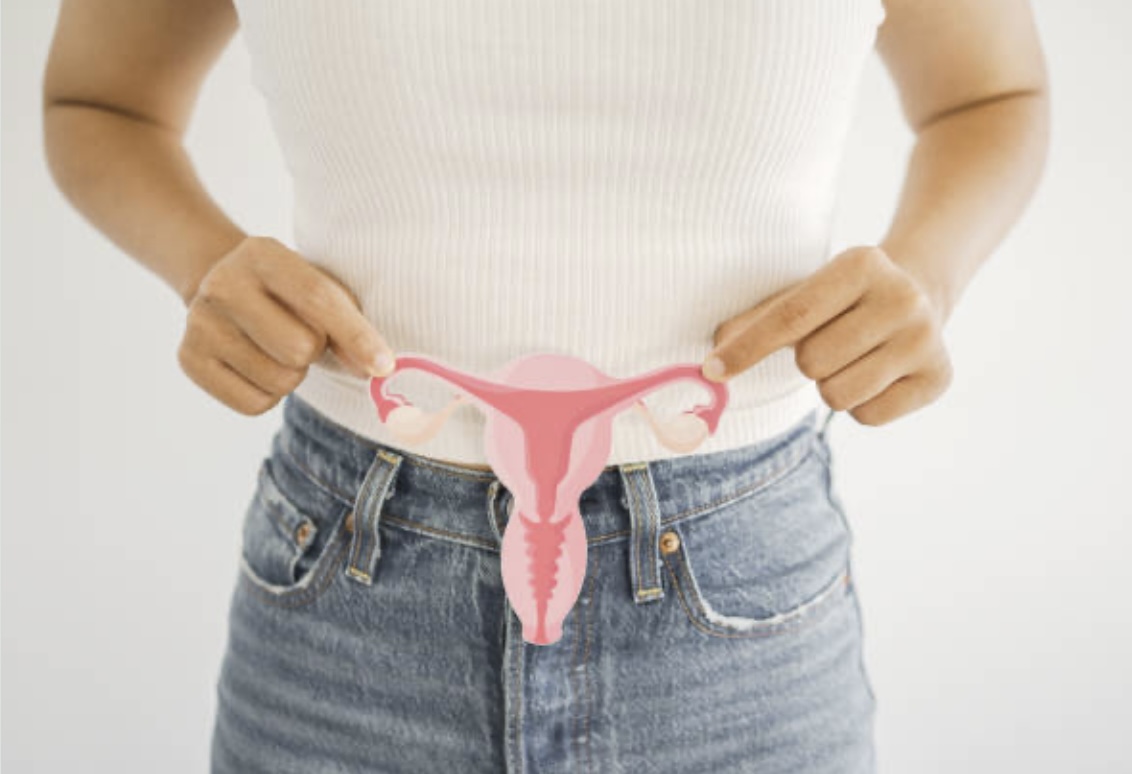Cervical cancer may have no symptoms at early stage. If we have a deeper understanding of cervical cancer and take appropriate preventive measures, the disease could be detected early.
Cervical cancer is a common cancer disease among women in Hong Kong. According to the Hong Kong Cancer Registry, in 2021, cervical cancer ranked seventh among the most common cancers among women in Hong Kong, accounting for 3.1% of all new cancer cases in women. Recent statistics show that the age of onset of cervical cancer is tending to be younger, and women from 20 to 70 years old are also likely to suffer from this disease. Statistics show that the cure rate for early-stage cervical cancer is as high as 90%. However, since early-stage cervical cancer may have no symptoms, it is difficult to detect the disease. If we have a deeper understanding of cervical cancer and takes appropriate preventive measures, the disease could be detected early and the cure rate of cervical cancer could be improved. This article discusses what cervical cancer is, its symptoms and causes, diagnosis and treatment, and how to reduce risk of cervical cancer.
What is Cervical Cancer?
Cervix is located at the top of the vagina, in the lower half of the uterus. When cells in the cervix are infected by Human Papillomavirus (HPV), abnormal cell changes may occur, which is called Cervical Intraepithelial Neoplasia (CIN). These cells are not cancer cells, but if left untreated, they may develop into cancer cells.

Symptoms of Cervical Cancer
Symptoms of early cervical cancer are not obvious, for example:
● Abnormal vaginal bleeding
● Bleeding between periods or after sexual intercourse
● Vaginal bleeding after menopause
● Blood in vaginal discharge
● Odor in vaginal discharge
Symptoms are more obvious in the middle to late stages:
● Late stage patients may experience back pain, swollen feet or difficulty in defecation
● Hard lumps in the lower abdomen

Causes of Cervical Cancer
Most cervical cancers are caused by persistent infection with one of the carcinogenic (or high-risk) types of Human Papillomavirus (HPV).
HPV is a group of more than 150 types of viruses, about 40 of which infect human reproductive organs, mainly through sexual contact. Most people infected with HPV do not have any symptoms and clear the virus on their own. However, some women may continue to be infected with high-risk types of HPV, such as Human Papillomavirus (HPV) types 16 and 18, which may cause abnormal cell changes and induce Cervical Intraepithelial Neoplasia (CIN). After a period of time, it may develop into cervical cancer.

How to Reduce The Risk of Cervical Cancer?
Although medical experts still do not fully understand the causes of cervical cancer, we know that certain factors increase the risk of cervical cancer, including:
● High-risk types of HPV, such as HPV types 16 and 18.
● Poor immunity, people with chronic kidney disease, AIDS or other immune system diseases.
●Women who have been infected with sexually transmitted diseases, especially those who have sexual activity at early age; in addition, the risk of cancer increases with the number of sexual partners of both parties.
● Taking hormonal contraceptives or receiving female hormone replacement therapy.
●self or immediate family members have been diagnosed with breast cancer, ovarian cancer or colorectal cancer.
●Smoking.
The following measures can effectively prevent cervical cancer:
●Quit smoking.
● Good hygiene and safe sex to prevent diseases transmitted through sexual contact. Using condoms can help reducing HPV transmission.
●Women aged 25 to 64 who have had sexual experience should have regular cervical smear test (also known as Pap Smear). Starting with once a year, if the results are normal for two consecutive years, then check every three years. This can reduce the incidence of cervical cancer by 90%.

●Receive vaccination against cervical cancer. HPV 9-in-1 vaccine contains L1 proteins of Human Papillomavirus (HPV) types 6, 11, 16, 18, 31, 33, 45, 52 and 58. It can prevent genital warts, precancerous lesions and cancers of cervix/vagina/vulva/anus, and head and neck cancers caused by the relevant HPV viruses.
For any questions or inquiries, please contact our medical centre at 25628398
or WhatsApp 59999587.



